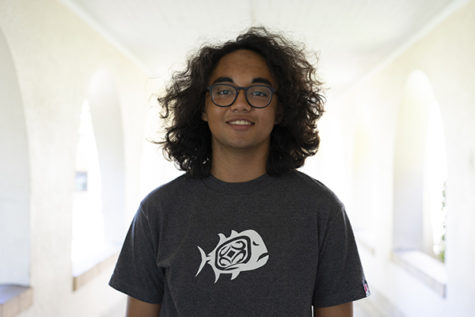All to Myself
How gatekeeping, the sense of entitlement to underground artists, is patronizing the music industry and its listeners.

It is widely believed that music directly impacts chemicals in our brains, which is why it often connects and brings people closer together. From sharing playlists with your loved ones to creating lifelong friendships with fellow fans, many people use music as a way to create social bonds with others.
While this is the way that the majority of people choose to experience music, others become upset when their favorite underground artists gain traction in the mainstream and look condescendingly at those who they consider “fake fans.” With this behavior, known as “gatekeeping,” becoming more prevalent in underground music circuits and online music communities, many have different perspectives on why people gatekeep, and if it should be okay to do so.
Luke Rainsford, an emo acoustic artist from Leeds, England, has a unique take on gatekeeping because of his outlook as an artist, as opposed to being solely a listener. Music has been an outlet for Rainsford to share his experience with grief, mental health and relationships. “To me, music is an escape,” Rainsford said. “It is the place I can truly be myself.”
When someone discovers a new artist that has a smaller fan base or is lesser-known, many enjoy having them as their little secret and begin to feel a sense of protection over them. There comes a point where the exclusivity is no longer what it once was, which can sometimes be upsetting for the fans. “People like to feel special and important. I get it,” Rainsford said.
Rainsford has noticed an increase in gatekeeping on social media platforms, seeing people spread hate to new fans of once smaller artists. “People like to laugh and be mean to people they deem ‘uncool’,” Rainsford said. I hate the idea of people being mass attacked because people deem someone ‘uncool’ based on their taste or appearance.”
Paly senior Ellie Walsh is an avid music listener, dabbling in singing and guitar playing herself. Walsh highlighted the harmful effects gatekeeping has on people who discover an artist after others. “It can be discouraging to a lot of people who could potentially love a particular artist but are blocked out because they didn’t discover them early enough,” she said.
Walsh also addressed the competitive aspects that come with listening to obscure artists. “There is an aura of superiority in people who gatekeep music and pride themselves on listening to super niche or obscure music,” Walsh said. “Warding off others from discovering that music to keep it in its state of obscurity is absurd.”
For Anna Mickelsen, a Paly junior, music has always played a big role in her life. Whether it’s playing the piano or creating the perfect playlist, Mickelsen finds ways to incorporate music into her life one way or another. Investing time in these activities has allowed her to notice the problems that exist in the music community.
Mickelsen noticed the exclusivity that is present in certain fandoms. Many fans feel overly protective of smaller artists once they begin to gain traction in mainstream music.
“There have been times that I have discovered a song from a lesser-known artist or band as it gained popularity and I have heard comments made by some of their fans suggesting that new listeners are ‘late to the party’ or that they wished the artist was still their little secret,” Mickelsen said.
Mickelsen agrees that people should have pride in who they listen to, but she also believes that many let their emotions from the newfound popularity of their favorite bands be negative instead of supporting the artist’s success.
“A lot of the time, people that are bigger fans of a music group or have supported them for a longer period think that they are more of a fan than others, which creates issues,” Mickelsen said. “It causes tension within music listeners and can turn away new people who have just discovered the artist because they are being treated as ‘newbies’ or lesser than fans that have supported them for longer.”
Not only are some fans unwelcoming to new listeners, but many are also not fond of people wearing merchandise of a band’s logo or name if they are not too familiar with them.
“There is definitely a culture where people feel that they can only wear band tees or listen to their music if they are a ‘real fan’ of the band or artist,” Mickelsen said. “The problem is that these people only deem you to be a ‘real fan’ if you know every little detail about the artists, which is really unfair.”
Although it can be bittersweet to see a small artist become popular, many forget the true values of music.
“People who gatekeep need to realize that music is for everyone to enjoy and should not be treated as a hierarchy,” Mickelsen said. “For many, music is an outlet to express themselves, so it is best to allow everyone to support who they want to support and leave any negativity out.”

2019-2020 - Staff Writer
2020-2021 - Managing Editor
I joined C Mag because of the fun spreads, creative designs, and interesting story topics!...

Theo's passion for music and writing is what drove him to join C Magazine. His favorite part of being on the staff is getting to meet and collaborate...

